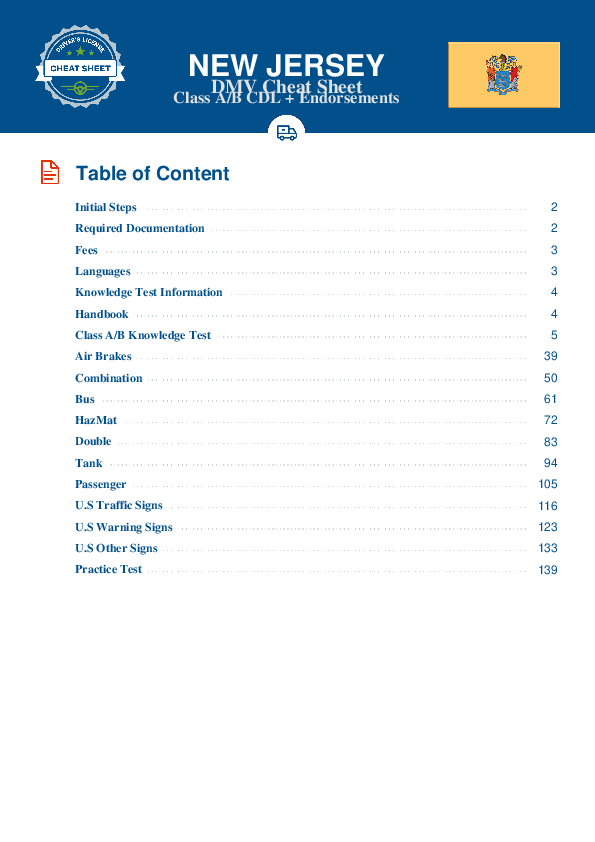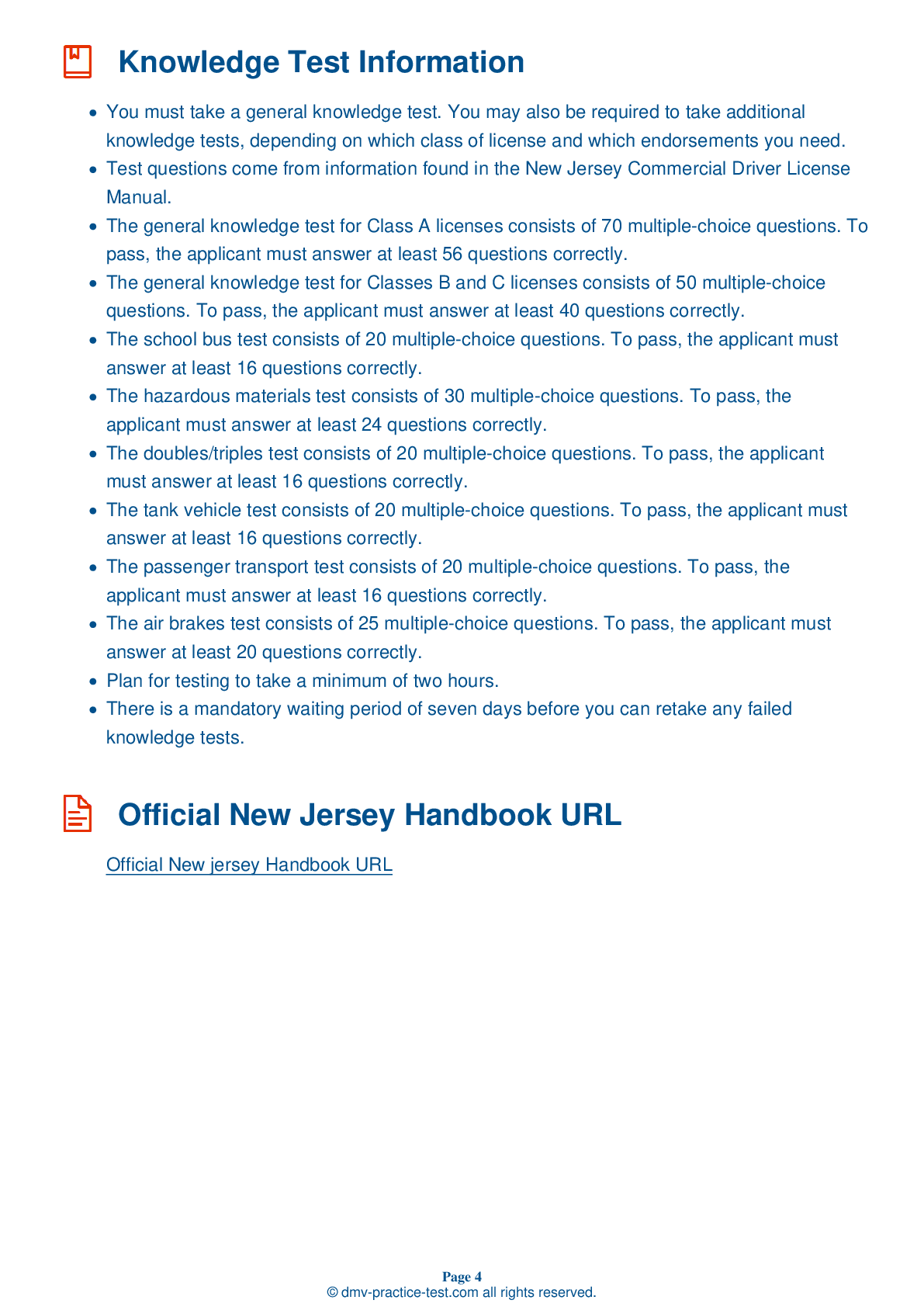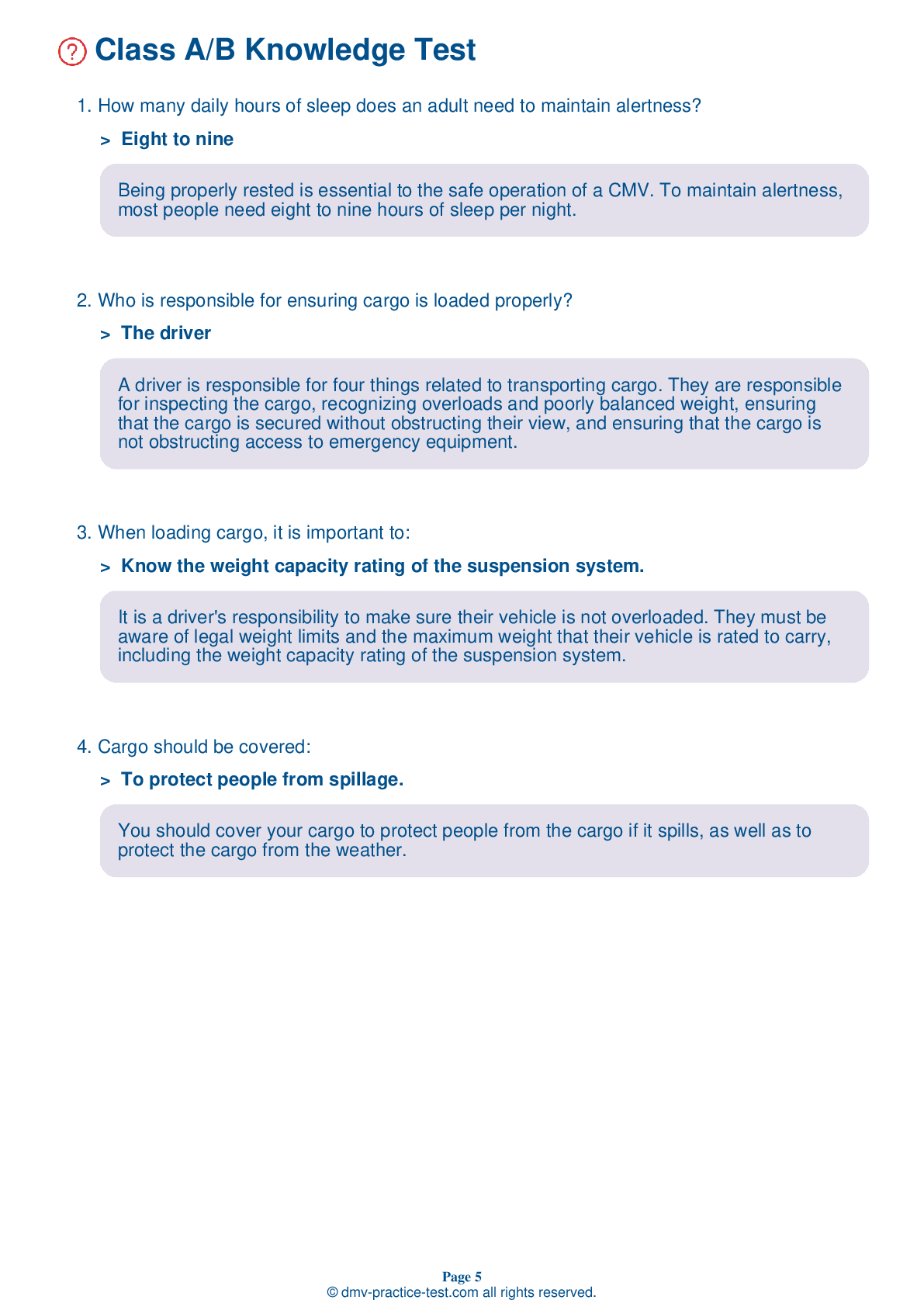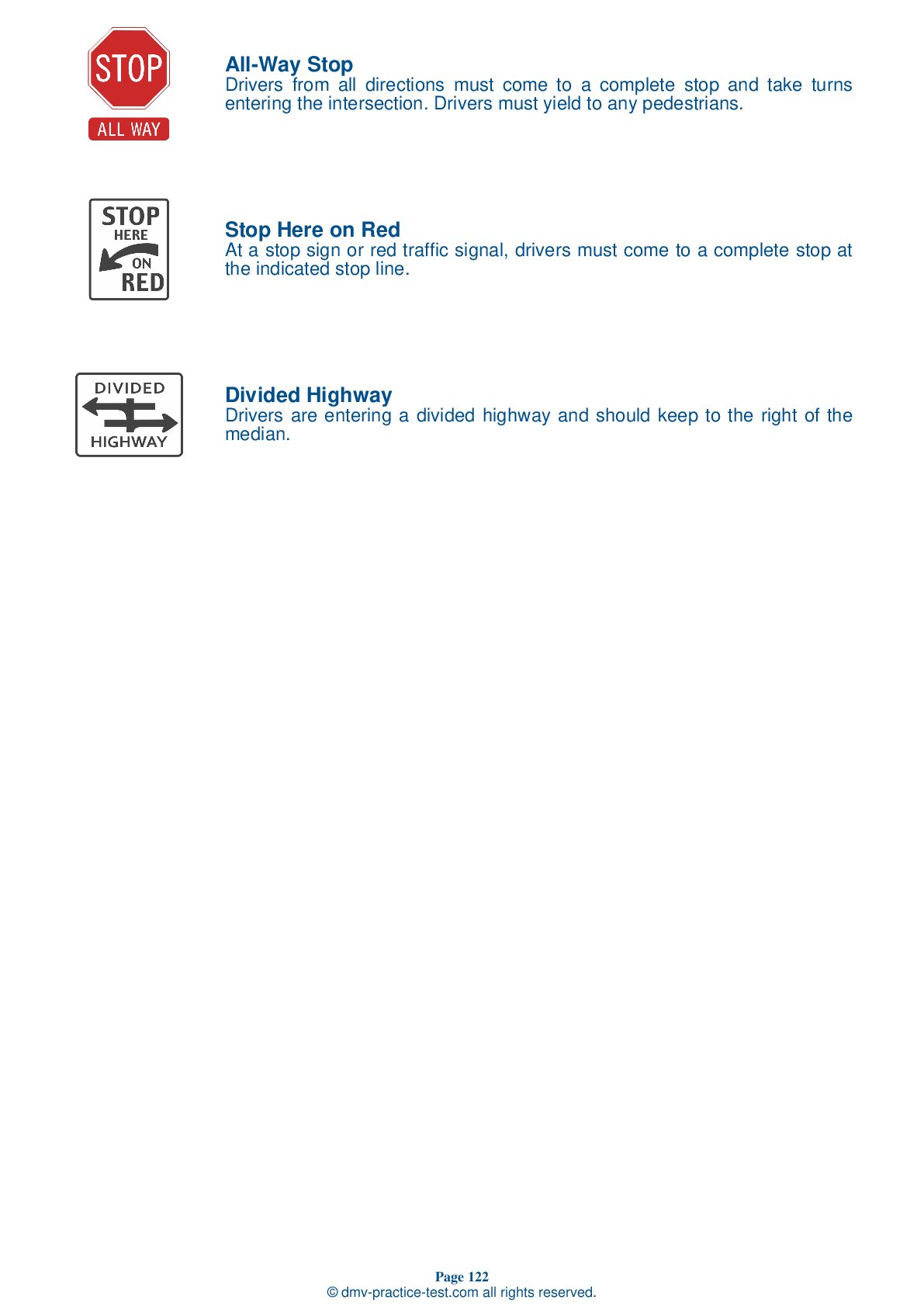Knowledge Test Class A #2
Class A Driving Test | New Jersey 2026 #2 Page 5 of 7
Train for FREE online with our New Jersey class A license test. The official exam test consists of several obligatory parts, with all of them checking your knowledge of different blocks of road rules. If you need to obtain a NJ CDL class A permit in 2026, practice as much as possible. Free sample tests published on our website will help you check and improve your knowledge and boost your grades. Please bear in mind that CDL class A requirements may vary from state to state.
50
40
20
29 . What can happen if parking brakes are used in very wet weather with temperatures below freezing?
The brakes may become too smooth to be used.
Parking brakes should not be used in very wet weather when temperatures are below freezing. The brakes could become frozen in place, making it impossible to move the vehicle.
30 . A cargo cover that flaps in transit:
Can attract birds.
Cargo covers should not flap in the wind. A flapping cover could tear loose entirely, exposing the cargo, and potentially blocking your view or the view of other drivers.
31 . Which of the following is not a part of the road test?
The defensive driving segment
The commercial driver road test consists of three parts: a pre-trip inspection; a basic vehicle control test; and an open road test.
32 . A sign indicating a maximum safe speed:
Is only applicable to automobiles.
You should never exceed the speed shown on a "Maximum Safe Speed" sign.
33 . When traveling with cargo, the cargo should be checked:
Only after arriving to the final destination.
Cargo should be inspected before beginning a trip, within the first 50 miles of the trip, and every three hours or 150 miles traveled thereafter. The driver of a truck transporting cargo is responsible for the cargo being safely secured throughout the trip.
34 . Failing to exit your vehicle properly during an exercise in the basic vehicle control skills test will result in:
An extra point against your score.
When exiting your vehicle during the basic vehicle control skills test, you must face the vehicle and maintain three points of contact at all times. If your testing vehicle is a bus, you must maintain contact with the handrail. Exiting the vehicle incorrectly may result in automatic failure of the basic control skills test.
35 . Cargo on flatbed trailers should be:
Pushed to one side.
On flatbed trailers and trailers without sides, cargo must be securely tied down to keep it from shifting or falling off in transit.
2026 New Jersey | Frequently Asked Questions
To acquire a CDL Hazmat endorsement in New Jersey, you must first have a valid CDL. Then, pass the Hazardous Materials Endorsement Knowledge Test at a Motor Vehicle Commission agency. You'll also need to undergo a TSA security threat assessment, which includes fingerprinting and a background check. Finally, submit the TSA approval to the MVC.
To obtain a CDL Hazmat license in New Jersey, you must already possess a Commercial Driver's License (CDL). You must also pass a Hazardous Materials knowledge test, submit to a federal security threat assessment, including fingerprinting and background check. In addition, you must be at least 21 years old and have no disqualifying criminal offenses.
When applying for a CDL Hazmat endorsement in New Jersey, you need to provide a valid CDL, proof of U.S. citizenship or appropriate immigration status, and identification documents. You will also need to complete the Hazardous Materials Endorsement Application and pass the Hazmat Knowledge Test. After passing a TSA security threat assessment, submit the approval to MVC.
Yes, there is a dedicated written test for the CDL Hazmat endorsement in New Jersey. It's known as the Hazardous Materials Endorsement Knowledge Test. This test assesses your understanding of transporting hazardous materials. You must pass this test before you can receive your Hazmat endorsement.
The written test for the CDL Hazmat endorsement covers a range of topics related to hazardous materials. These include identifying different types of hazardous materials, understanding shipping papers, using placards and labels, loading and unloading hazardous materials, handling emergencies, and following safety procedures. The test is designed to ensure drivers can safely transport hazardous materials.
Yes, there are extra charges associated with acquiring a CDL Hazmat endorsement in New Jersey. These include a fee for the knowledge test, a fingerprinting fee, and a TSA security threat assessment fee. The exact cost may vary, so it's recommended to check with the New Jersey Motor Vehicle Commission for current fees.
Yes, to obtain a CDL Hazmat endorsement in New Jersey, you must undergo a federal background check and fingerprinting. This is mandated by the Transportation Security Administration (TSA) to ensure that hazardous materials are transported safely. The TSA will review criminal, immigration, and mental health records as part of this process.
Yes, specialized training is required for the CDL Hazmat endorsement. Applicants must pass a written test that covers hazardous materials regulations and safety procedures. Additionally, they must undergo a TSA security threat assessment, which includes fingerprinting and a background check. There is no separate certification, but the endorsement is added to your CDL upon passing the test.
No, you cannot legally transport hazardous materials without a valid CDL Hazmat endorsement in New Jersey. This endorsement demonstrates that you have the necessary knowledge and training to handle and transport hazardous materials safely. Transporting hazardous materials without the proper endorsement can result in hefty fines and penalties.
Yes, you can add the Hazmat endorsement to your current CDL license in New Jersey. You don't need a new application for the CDL itself, but you do need to pass the Hazmat knowledge test, submit a fingerprint-based background check, and pay the associated fees to get the endorsement.



